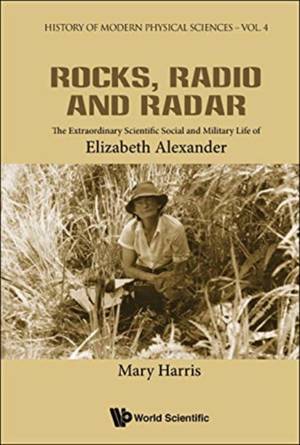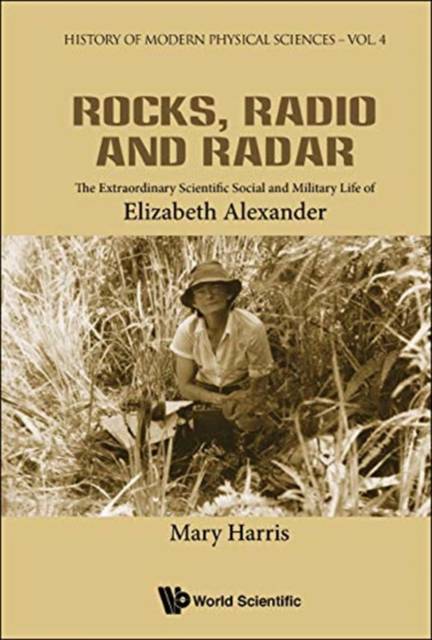
Bedankt voor het vertrouwen het afgelopen jaar! Om jou te bedanken bieden we GRATIS verzending (in België) aan op alles gedurende de hele maand januari.
- Afhalen na 1 uur in een winkel met voorraad
- In januari gratis thuislevering in België
- Ruim aanbod met 7 miljoen producten
Bedankt voor het vertrouwen het afgelopen jaar! Om jou te bedanken bieden we GRATIS verzending (in België) aan op alles gedurende de hele maand januari.
- Afhalen na 1 uur in een winkel met voorraad
- In januari gratis thuislevering in België
- Ruim aanbod met 7 miljoen producten
Zoeken
Rocks, Radio and Radar: The Extraordinary Scientific, Social and Military Life of Elizabeth Alexander
Mary Elizabeth Harris
€ 225,95
+ 451 punten
Omschrijving
'This is an interesting and bittersweet biography. Elizabeth Alexander was a capable and energetic scientist, but circumstances meant that she was never able to settle down and develop her scientific career. The three years she spent in charge of the Operational Research Section of the Radar Development Laboratory in New Zealand was the only time that Elizabeth held a position of responsibility, and is a clear indication that, had she lived 50 years later, she would have been an effective science leader ... The book outlines the career of a remarkable scientist, and is a significant contribution to the history of several different areas of science. 'Scoop Review of BooksMany women scientists, particularly those who did crucial work in two world wars, have disappeared from history. Until they are written back in, the history of science will continue to remain unbalanced. This book tells the story of Elizabeth Alexander, a pioneering scientist who changed thinking in geology and radio astronomy during WWII and its aftermath.Building on an unpublished diary, recently declassified government records and archive material adding considerably to knowledge about radar developments in the Pacific in WWII, this book also contextualises Elizabeth's academic life in Singapore before the war, and the country's educational and physical reconstruction after it as it moved towards independence.This unique story is a must-read for readers interested in scientific, social and military history during the WWII, historians of geology, radar, as well as scientific biographies.Related Link(s)
Specificaties
Betrokkenen
- Auteur(s):
- Uitgeverij:
Inhoud
- Aantal bladzijden:
- 616
- Taal:
- Engels
- Reeks:
- Reeksnummer:
- nr. 4
Eigenschappen
- Productcode (EAN):
- 9781786346643
- Verschijningsdatum:
- 21/05/2019
- Uitvoering:
- Hardcover
- Formaat:
- Genaaid
- Afmetingen:
- 152 mm x 229 mm
- Gewicht:
- 984 g

Alleen bij Standaard Boekhandel
+ 451 punten op je klantenkaart van Standaard Boekhandel
Beoordelingen
We publiceren alleen reviews die voldoen aan de voorwaarden voor reviews. Bekijk onze voorwaarden voor reviews.









